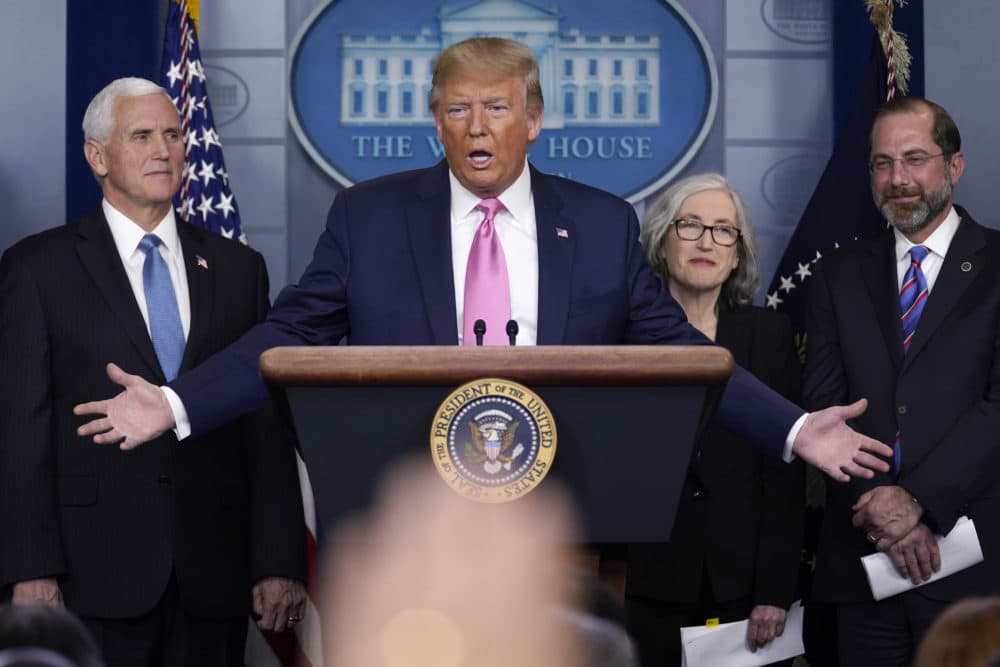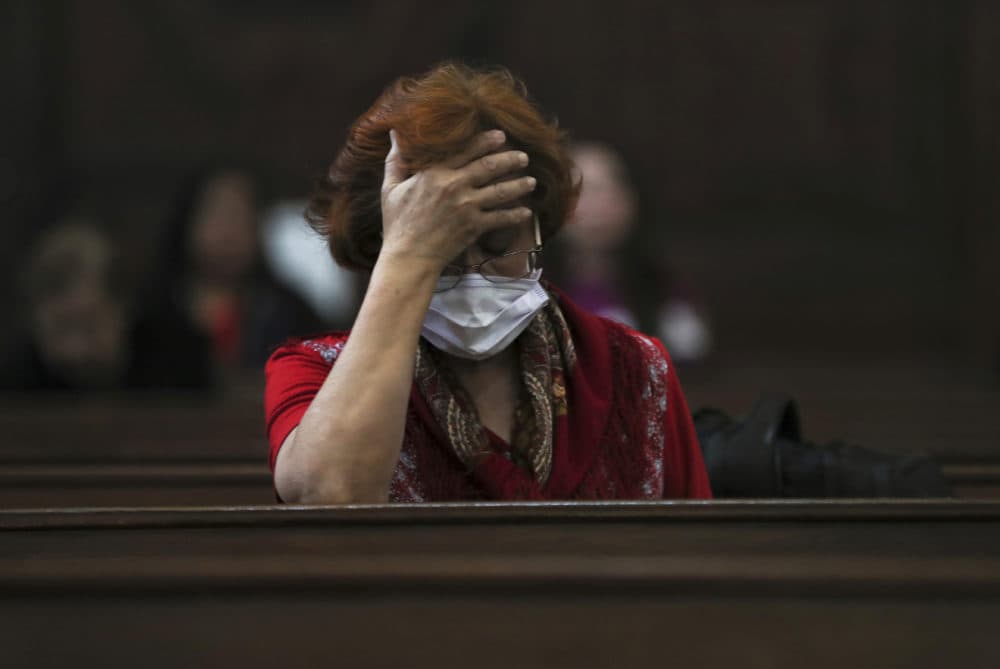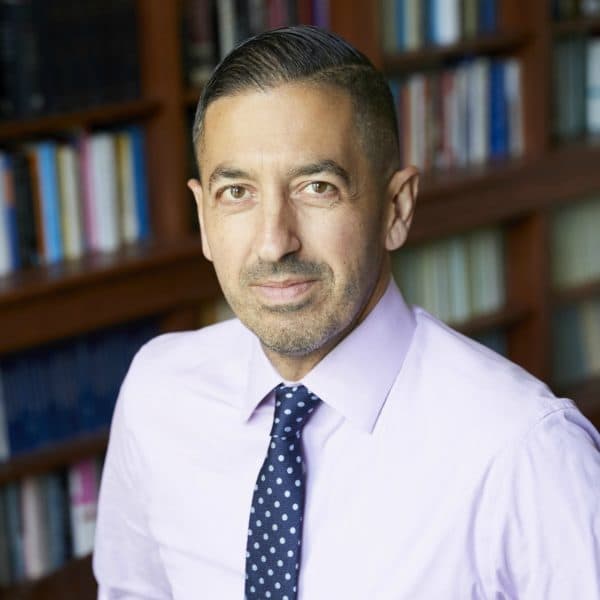Advertisement
Commentary
Donald Trump Finally Addressed Coronavirus. It Did Not Make Me Feel Better

On Wednesday night, President Donald Trump spoke to the nation about the growing public health challenge of the new coronavirus, known as COVID-19. Appearing with officials from the Centers for Disease Control and Prevention (CDC), he announced he had placed Vice President Mike Pence in charge of the administration’s response to the virus. Trump also suggested that the risk to Americans is low, while acknowledging the potential for the outbreak to grow. He said, "I don't think it's inevitable. It probably will. It possibly will. It could be at a very small level or it could be at a larger level. Whatever happens, we're totally prepared."
The president’s remarks were not at all aligned with earlier statements of CDC officials, including Dr. Nancy Messonnier, head of the National Center for Immunization and Respiratory Diseases at the CDC, who said of the disease’s spread, "It's not so much a question of if this will happen anymore but rather more a question of exactly when this will happen — and how many people in this country will have severe illness.”
Granted, it is not easy for a non-health expert to take rapid-fire questions from reporters, nor can it be easy for the president to balance multiple competing voices within any complex administration. Yet, Donald Trump’s words appeared to downplay concerns about COVID-19 at a moment when we need clarity of communication, and well-defined commitment to public health above all else. Moments like this call for officials to respond accurately, sharing the urgency of the situation without causing undue alarm. The president’s ambivalence about expert opinion, seeming to downplay COVID-19, does the health of Americans no service at all.
... our willingness to turn a deaf ear to science has led to disinvestment in the policies and institutions that are meant to keep us safe.
Of course, this would not be the first time we have seen science brushed aside in favor of politics. From climate change denial to the movement against vaccines, it has become common to hear political talking points drown out scientific voices. Even as the real-world consequences become clear — from storms and fires to the resurgence of measles — the political game continues.
The result is poorer health for all, both in the short and long term. The short-term effects of the administration’s confusion on COVID-19 is that our response may not be as robust and coordinated as it should be. In the long-term, it means we will not lay the foundations for preparedness for the next large-scale public health threat.

In the U.S., our willingness to turn a deaf ear to science has led to disinvestment in the policies and institutions that are meant to keep us safe. This attitude has in many ways reached its zenith with the Trump administration, which has cut many of the programs created to safeguard general welfare and public health, including programs designed specifically to protect the country from pandemics. While the Trump administration has paid lip service to vigilance in the moment, creating a healthy society takes sustained effort over many years, supported by collective investment and the best science.
Politics matters for health. So does science. When they work in tandem, they can create a world that is exponentially healthier. When they conflict, they not only stall progress, they can reverse it, leaving us open to preventable threats, and vulnerable in times of challenge.
History teaches that sudden, large-scale outbreaks hold a mirror to the societies in which they emerge.
History teaches that sudden, large-scale outbreaks hold a mirror to the societies in which they emerge. We will likely learn as much about ourselves in the coming months as we will about this new disease.
Donald Trump was right in one respect: We do have outstanding scientists in the U.S. who can help guide us through this. The administration’s response needs to be informed by these people, and to fall in line with their expert opinion.
Ultimately this moment pushes us to confront a fundamental question: Do we want to be a society that values health, and demonstrates it through our commitment to science? Or, do we want to be a society that neglects laying the foundations for a healthier world, to the detriment of all?
